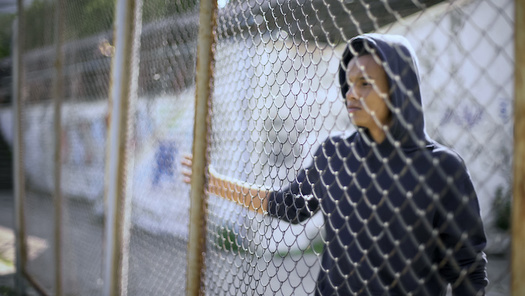
Across the country, the coronavirus has prompted juvenile-detention facilities to release kids at higher-than-usual rates. But a new report from the Annie E. Casey Foundation finds releases have now stalled, leaving many youths, disproportionately Black children, still living in pre-trial confinement and potentially vulnerable to contracting COVID-19.
Summit County Juvenile Court Judge Linda Tucci Teodosio said some courts are finding new ways to prevent kids from being admitted to detention centers.
"If we get a call here at our detention center that the police are bringing a youth to our center, we might ask them if we can't do a quick screen to see if they meet our hold criteria, and if they do not, we may ask the police to take them directly home," Teodosio said.
According to the report, as of June 1, the number of young people in detention nationwide is 27% below its pre-COVID-19 crisis level, but is no longer dropping month-by-month.
Teodosio pointed out the inability of courts to safety hold jury trials during the pandemic has contributed to the slowed pace of releasing detained young people.
"For example, for our youths that are being held in our detention center who have pending murder charges in the adult system, we hold them here, because they are still under the age of 18," she said.
Nate Balis, director of the Juvenile Justice Strategy Group at the Annie E. Casey Foundation, said though nationwide detention admissions of Black youths shrank a bit more than admissions among white youths, race continues to be a major factor when it comes to releases.
"Racial disparities have actually gotten worse, because juvenile justice systems have been slower getting Black youth out of detention than their white peers," Balis said.
Research has shown holding kids in detention while they await a hearing, instead of allowing them to return home or enter an alternative supervision program, can lead to serious mental health problems, poor academic performance, and other potentially lifelong negative effects.

